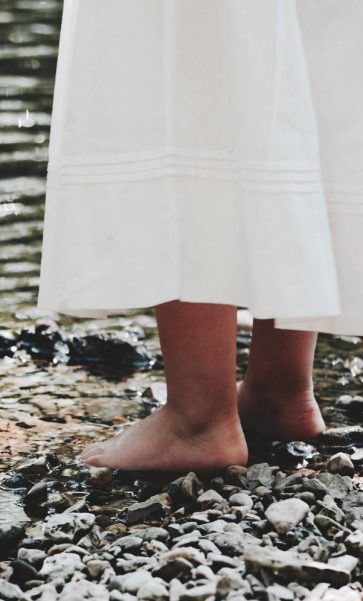There is a memory-related phenomenon of which every single one of us, whether we like it or not, have been victims at some point in our lives: seeing the past with rose-tinted glasses.
Thinking of this phenomenon, I can’t help but remember my grandpa Oreste, who always spoke about his adventures racing speedboats or hunting doves along with his older brother when they were just kids.

My grandma Nelly never ceased to amaze me when she described to me what this city looked like decades ago, when she rode the streetcar through downtown holding her father’s hand, and how he always wore a hat.
I also remember my grandfather Miguel, who told fantastic stories about what his life was like when he was a young child living in India, Hong Kong, and Japan. And how could I forget the antics of my grandma Teresa, who attended a catholic school, and who, during an earthquake, instead of running to a safe spot to cover herself up, ran towards an innocent and frightened nun, pulling her veil vigorously just to make sure that nuns did have hair under their veil?

And just like that, each of them in their own unique way always remembered these stories as if they were blissfully reliving them as if looking at the past with rose-tinted glasses.
Throughout my childhood and up until I was 15, I lived abroad from my hometown, where my grandparents lived. I longed to visit my family so they could make my imagination fly through all those places and experiences while having a triumphant smile, as if every one of their memories was an imaginary trophy they carried, making their chest swell with pride. All these stories left tons of images imprinted in my brain with the sharpness and clarity of a high-definition TV.
However, this phenomenon is not only suffered by the grandmas and grandpas of the world. It can also be commonly seen in young (and not so young) adults who remember their childhood and teenage years with a combination of nostalgia, optimism, and the firm conviction that everything that happened in their lives already was the best part of it.
This belief usually prevents us from enjoying the present and looking at the future favorably. And just like that, we condemn ourselves, as well as our future, without even knowing what great things it might bring us.
Some time ago, I read a phrase that seems important to mention. Paraphrasing it, it said something about how we shouldn’t have our hands filled with yesterday because then we wouldn’t be able to grasp all the good that tomorrow will bring us.
I believe this to be a more positive way of looking at things. This means that even though the past was good, and we should remember it as such, we should also live intensely in order to create other remarkable and amazing memories that we can treasure further into our walk of life.

Nonetheless, all of this inevitably makes me wonder: why is it that we hold on to memories from the past with such longing? Because, I must confess that at age 32, I’ve been a victim of this phenomenon for a long time as well. This question has always been at the back of my head, and seemingly, there’s no such thing as an antidote for it. So, is it that we filter our memories through rose-tinted glasses so we conveniently choose those that are worthy of remembrance?
Science tells us that remembering something is like opening a file on a computer, and therefore, every time we open it, we modify it, even mildly. This doesn’t explain why we cling to some memories, but as we tell our stories repeatedly, we create networks in our brain that are strengthened every time we access those memories.

It’s possible that as we go back to our memoirs, we slightly tweak them into a rose-tinted version of themselves. As Ernesto Sabato noted in his book El Túnel, we think of the past as somehow being “better”; and this doesn’t necessarily indicate that terrible things happened before, but instead, that people tend to take it into oblivion.
My past defines my present, and my presentation will define my future as I continue to build it. All I know for sure is that whether it’s good or bad, the past has brought us to where we stand today.
Up until now, I keep on listening to the stories of my grandmothers again and again (because over the past few years they’ve started to repeat most of them), and I still savor them as much as I did when I was a child.
My grandfathers, who are no longer here with me, have left their legacy through those rose-tinted memories they dearly treasured.
Hence, I will continue to remember and share their stories as a tribute to what they left behind, and the undisputed certainty that we will always think of the past as being better.


